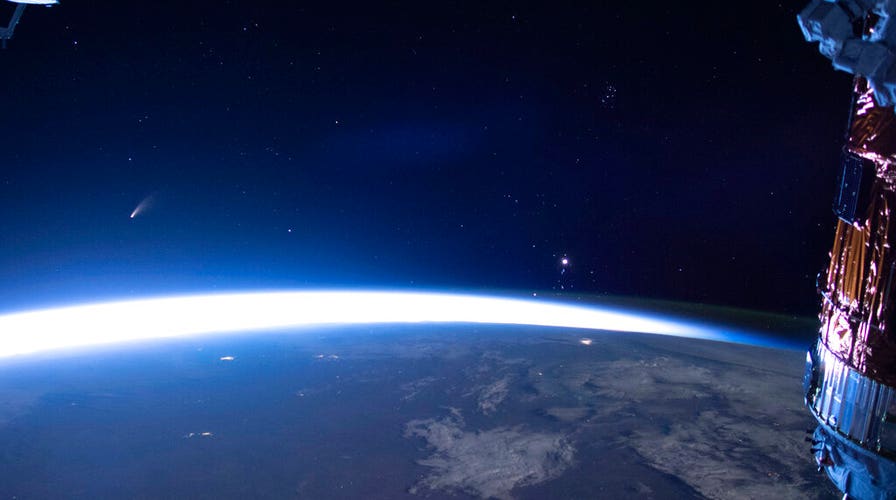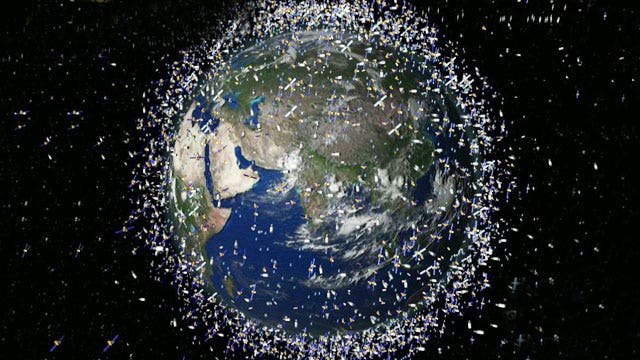Fox News Flash top headlines for Dec. 30
Fox News Flash top headlines are here. Check out what's clicking on Foxnews.com.
Japanese researchers are working on satellite technology that would use wood components to eliminate excess space junk, allowing objects to burn up upon reentry to Earth’s atmosphere, according to a new report.
Sumitomo Forestry, a 400-year-old Japanese woodworking company, is partnering with Kyoto University to develop the technology, the BBC reported Tuesday.
NASA estimated more than a decade ago that 95% of manmade objects in orbit were space junk. They come from defunct satellites, discarded rocket stages and other discarded mission materials.
NASA CONFIRMS MYSTERIOUS OBJECT ORBITING EARTH IS 1960S-ERA ROCKET BOOSTER
Most of it is relatively small, according to the European Space Agency. Out of 128 million pieces of debris in orbit, only about 34,000 objects are larger than 10 cm. But when larger objects collide, they produce many, many smaller ones. And they can travel more than 20,000 mph, making even tiny particles dangerous.
There are also about 2,800 functioning satellites in orbit, according to the Union of Concerned Scientists, which maintains a satellite database. Governments and space-faring companies have plans to launch thousands more in the future.
Experts are concerned that too much junk in orbit could complicate future launches, possibly narrowing the window of flightpaths. Larger objects that fall out of orbit are also dangerous for life on the ground
CHINESE SPACE JUNK NARROWLY MISSED HITTING NYC, REPORT SAYS
Space junk threatens satellites and could be potentially lethal to astronauts. Some launches from countries less concerned about safety protocols can send huge chunks of material hurtling back down to Earth.
In May, a Chinese rocket core rained down in pieces over West Africa. If its reentry had been minutes earlier, it could have slammed into New York City.
Wooden satellites would break up completely, rather than slamming back to the surface or leaving tiny metallic particles that could pierce spacesuits, solar panels or shuttles in the future.
"We are very concerned with the fact that all the satellites which re-enter the Earth's atmosphere burn and create tiny alumina particles which will float in the upper atmosphere for many years," Kyoto University professor and Japanese astronaut Takao Doi told the BBC. "Eventually it will affect the environment of the Earth."
In October, two pieces of junk nearly collided 615 miles above the Earth. One was an inoperable Russian satellite launched in 1989 and the other a Chinese rocket stage from 2009.
CLICK HERE TO GET THE FOX NEWS APP
The objects passed within 39 feet of one another in a near miss, but a crash could have broken them into thousands of pieces then posed risks for more collisions with other objects.










































